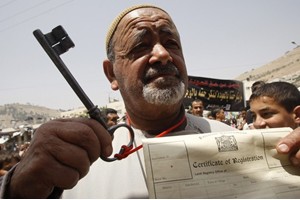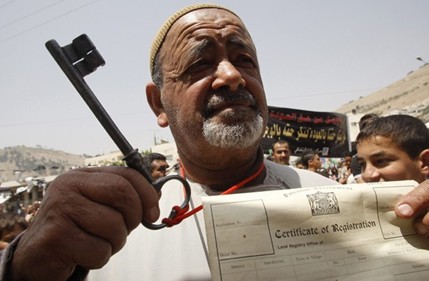
Tel Aviv University’s dean of students recently approved a ceremony to commemorate Nakba Day, of to take place on campus on Monday, May 14. Nakba is the Arabic word for catastrophe, and for Arab-Palestinians, Nakba day marks the anniversary of the evens of 1948. In January, the High Court of Justice upheld the controversial Nakba Law passed by the Knesset in March, which fines bodies who mark the Israel’s Independence Day as a day of mourning.

The ceremony was set to be held by Hadash students next Monday in the plaza adjacent to the Naftali social sciences building. On Wednesday, University security services decided that because of a “possibility of disturbances,” the event will instead be held at Antine Square, located near the entrance to the University. University security services also stated that the students behind the event must provide funding for the salary of at least six University security guards to ensure order at the event.
“Payment must be made to security services up until two days prior to the event. Failure to pay will result in a revocation of permission to hold the event,” read a statement released by University security services. The notice continued, “Use of a sound system is prohibited; only megaphones will be allowed. No posters, signs, or flags may be hung up in the square.”
Safi Kadaan, a sociology student, and one of the promoters of the ceremony, responded to the notice. “We’re talking about a new idea, a new campus framework in which there will be a ceremony not just for Arab students, but for everyone,” said Kadaan. Kaddan continued, “We’re talking about a disaster that must be known on a human level. Historical background will be presented at the ceremony, no anthems will be sung, because this a human issue, not only a national one.”
According to a member of the Communist Party of Israel Central Committee, Noa Levy, a law student and organizer of the Nakba Day ceremony, “The idea of the ceremony is to be concrete recognition of the pain and loss that the government caused people in this land feel. It’s less about the political-national question, and more about recognizing the tragedy that happened here.”
“Every year different political bodies organize events focusing on the Nakba, in an attempt to make it the focal point of relations between Jews and Arabs in the area. What has never been done, and the time has come to do it, is to commemorate the Nakba in an alternative way, accessible to and created for the Israeli public – an event to remember the tragedy and great loss that befell the people who were here before ’48, many of which still live here,” continued Levy.
Levy also commented on the nature of the ceremony to be held. “It won’t deal with issues of blame, instead it will present the tragedy in as personal a way as possible,” said Levy On the ceremony’s agenda is a reading of a poem by Palestinian Darwish, a moment of silence, as well a reading of an alternative version of the “Yizkor” prayer traditionally read at events commemorating fallen soldiers.


